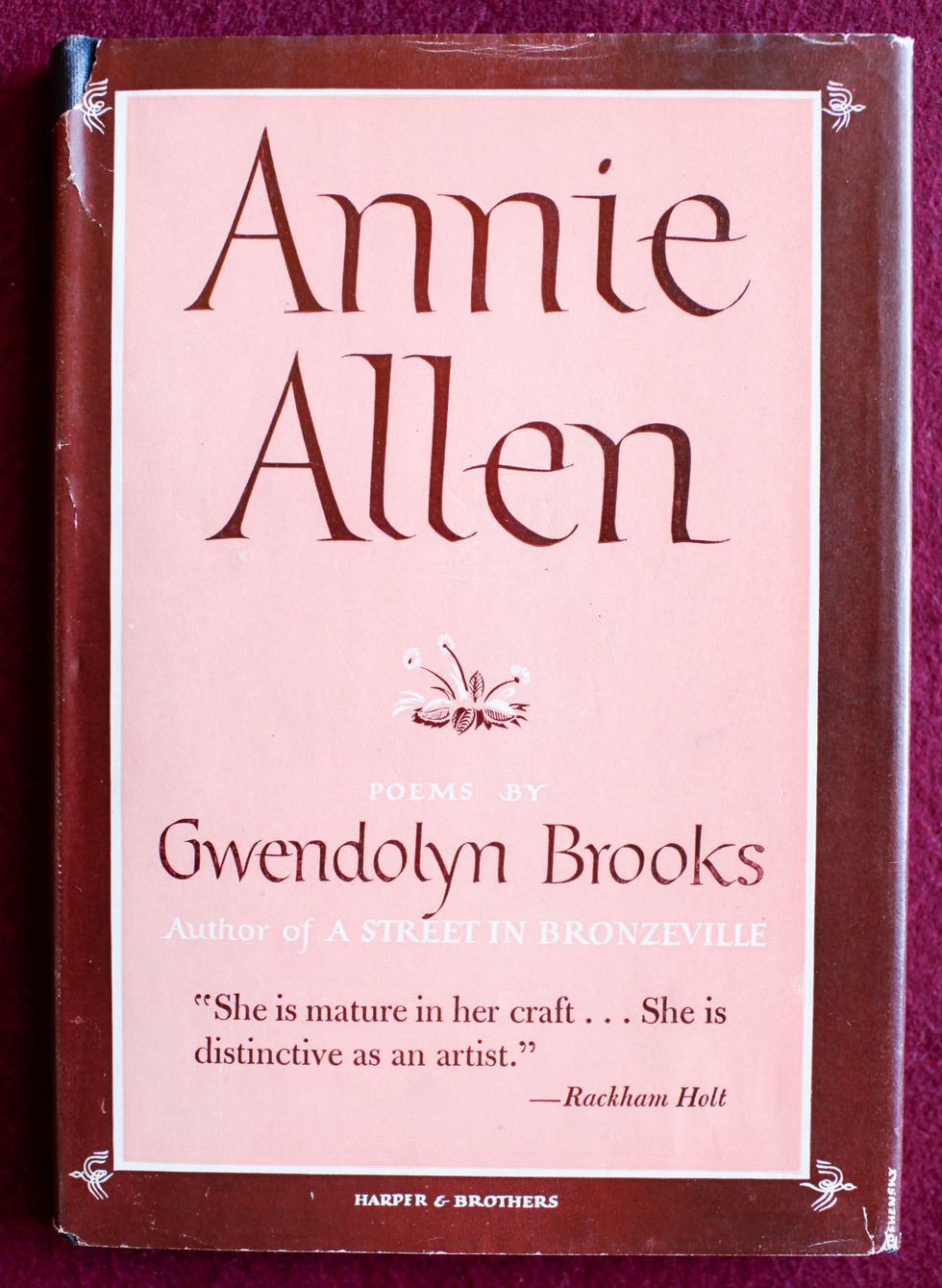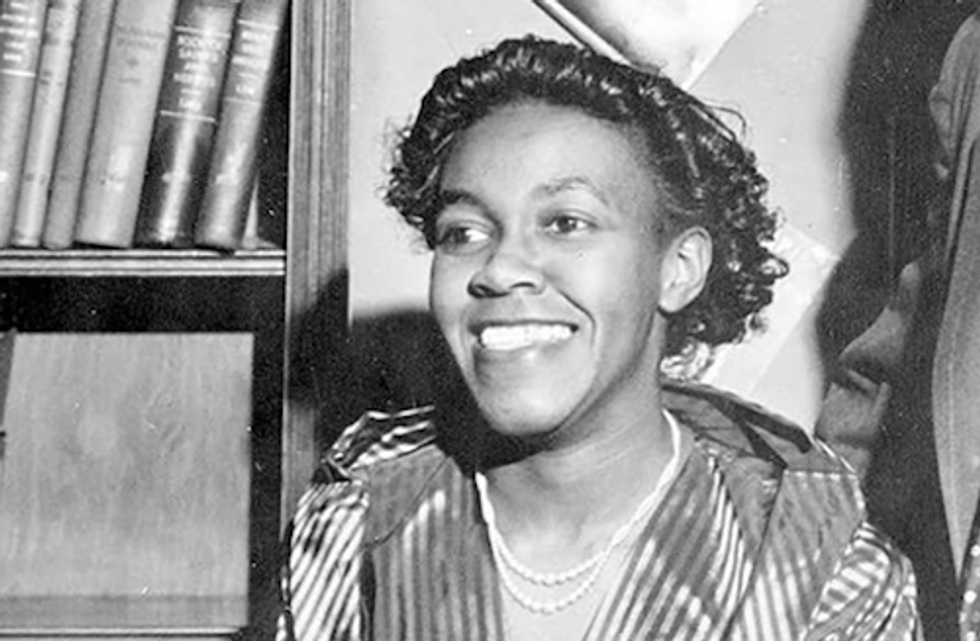Gwendolyn Brooks’ career as a successful and influential poet starts from an extremely early age. Brooks was first published at the age of 13 in Eventide children’s magazine. As a teenager, she managed to publish a total of 75 poems for various different entertainment organizations including The Chicago Defender, a black run newspaper.
Throughout these publications, Brooks displays her breadth and depth of poetic skills by writing in a myriad of different styles from sonnet, to ballad, to free verse.
In 1945 Brooks published her first book of poetry titled A Street in Bronzeville. Her note to the editor describes her artistic intentions rendered within her works. "There is no self-pity here, not a striving for effects. She takes hold of reality as it is and renders it faithfully.... She easily catches the pathos of petty destinies; the whimper of the wounded; the tiny accidents that plague the lives of the desperately poor, and the problem of color prejudice among Negroes."
Brooks' went on to publish two more critically acclaimed works that depict young black women falling from childhood innocence into adulthood. One of these works titled Annie Allen won a Pulitzer Prize in 1950, making Brooks the first ever African American to win a Pulitzer.
Poetic collections created by Brooks provides us with an example of complex, multidimensional and intersectional characters that mainstream media too often fails to represent. Women of color are frequently underrepresented or misrepresented in media, quietly promoting racist sentiments among the millions of viewers of mainstream entertainment. Intersectionality within mainstream media has the potential to shift its current covertly bigoted narrative. Representation matters and Brooks is able to provide us with a template for future inclusion and diversity in entertainment.
Furthermore, when we recognize the accomplishments of women of color and give them a platform this creates a more accepting and diversified space that promotes the success of other WOC. I would argue that the success of Gwendolyn Brooks may have been a key component to the success of various other women in the literary field simply because she was allowed to take up space, promoting and normalizing the presence of women of color.



















